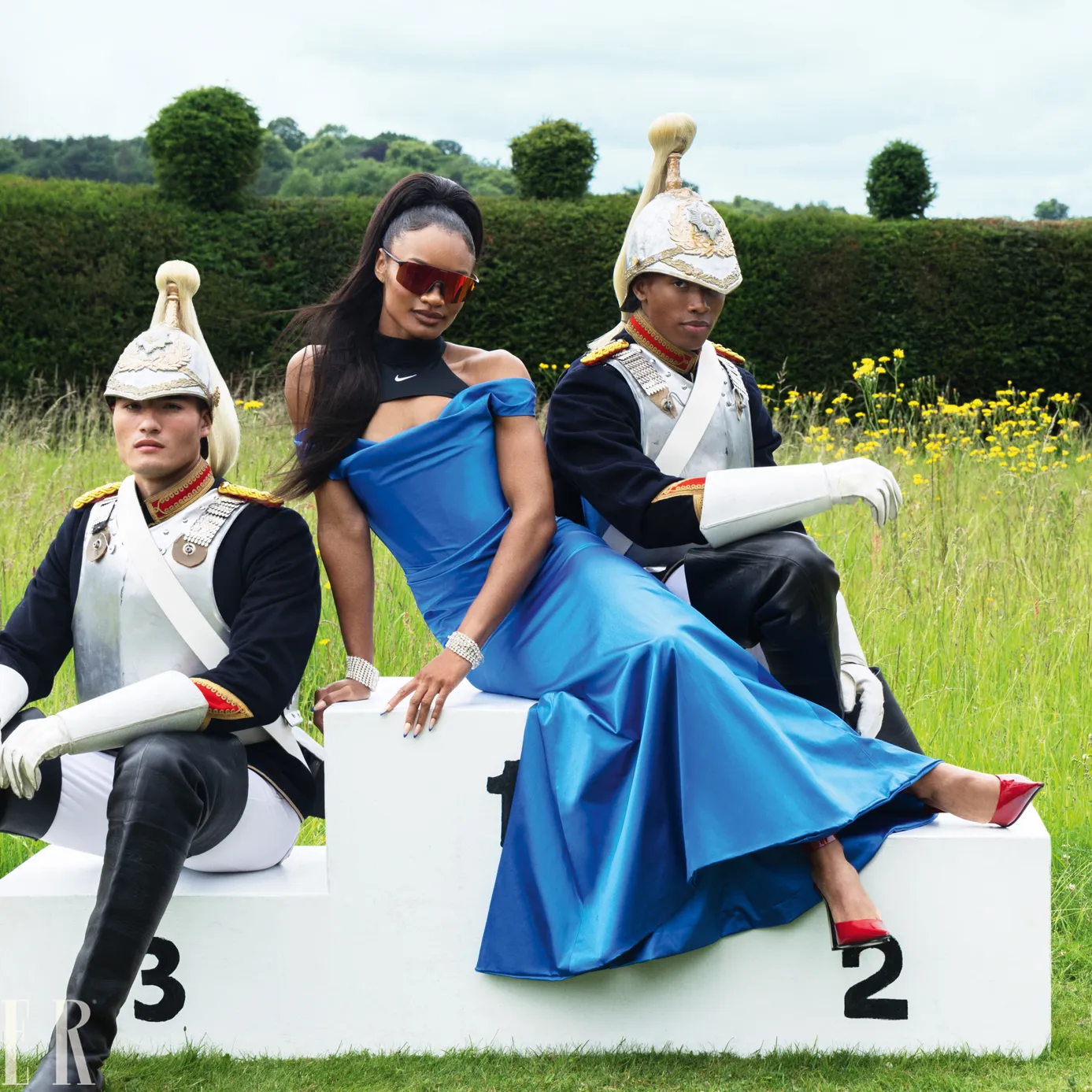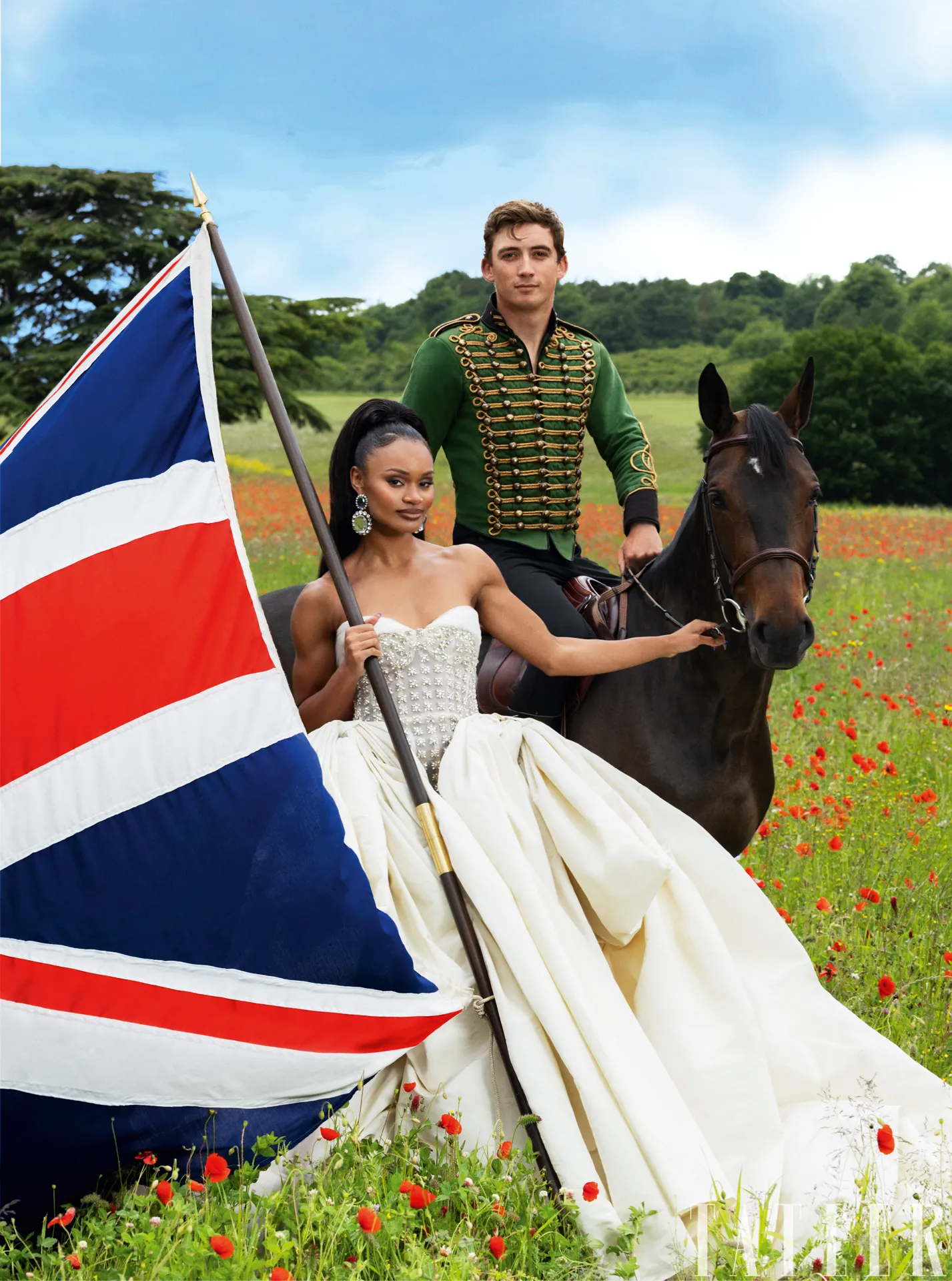Chasing Gold: Olympian Sprinter Imani-Lara Lansiquot
- Polo Lifestyles 2020

- Aug 6, 2024
- 4 min read
At Lee Valley Athletics Centre, Chingford, Imani-Lara Lansiquot slaps her thighs and crouches down on the start line. Laser-focused and stony-faced, she places her Nike spikes on the blocks. Her coach blows the whistle, and she springs out, sprinting past like a cheetah – the distance completed in a flash. Seconds later, she breaks into a little dance, singing with swagger Beyoncé’s famous lyrics: ‘Who run the world? Girls!’

It all feels very relaxed for someone who is in the last weeks of training for the Paris Olympics. But then again, Imani-Lara’s motto is: ‘“Take it seriously. Don’t take yourself seriously”. If you don’t see it that way, you’re effed,’ she says, adjusting her hair, her electric-blue acrylic nails catching the light.
It’s easy to see why this Team GB sprinter – a bright-eyed glamazon and the third-fastest British woman in history – is a star. Her killer mindset and world-class speed mean she’s used to the limelight: at the age of 23, she represented Britain at the Tokyo Olympics, winning bronze in the 4x100-meter relay. And now, three years later, she is flying the British flag again in Paris.
At the time of our interview, Imani-Lara already had a place in the women’s relay squad; two weeks later, she secured her rightful spot in the 100 meters as a solo athlete. On the day we meet, she is confident, unperturbed and hyper-focused. ‘I’m just so excited to show the world what I’ve got,’ she says.
Imani-Lara’s dream would be to make the Olympic final. ‘I’d need to [run] close to my PB, which is 10.9 seconds. But I would love to try and break 10.9 and go into 10.8. That would be unreal,’ she says. It will be her first time competing solo in the 100 meters at Olympic level. She didn’t make the Tokyo team as an individual runner. ‘I was devastated,’ she says, sliding into her blacked-out Land Rover (which she bought because it ‘looked pretty’ and had leather massage seats). But this year feels different. ‘I’m a much better athlete now,’ she says. ‘I’ve matured so much. I feel so ready for this one.’
It shows: ‘Us 100-meter sprinters, we have that confidence and coolness about us.’ That is an understatement. Female sprint superstars have always been the most exuberant, glamorous divas on the track; known for gorgeously groomed hair, bold nails and make-up. Just think of the 1980s American legend Florence ‘Flo Jo’ Griffith Joyner, Jamaica’s flashy Shelly-Ann Fraser-Pryce and Great Britain’s elegant champion Dina Asher-Smith.
But none of that attitude comes without a watertight training program. Imani-Lara’s is a grueling schedule of almost daily five-hour track sessions, followed by circuits, ice baths, oxygen chamber sessions and yoga. Mindfulness is key, too: ‘I meditate and do lots of race visualization,’ she says. In training today, she imagines she is running the Olympic race from a plethora of angles (bird’s-eye view, side profile, slow motion). ‘It’s so that when I’m on the start line, I feel like I’ve already run it. And obviously, in every scenario, I’m winning,’ she says, bursting into laughter. ‘There’s no point stressing about it. I just must trust in my training and let my body do its automatic thing.’
‘What’s good?’ says an unidentified voice from the car speakers. Then the same voice shouts enthusiastically: ‘West Indies, yeah! West Indies, yeah!’ Imani-Lara laughs, clapping her hand to her mouth. It’s her father, Richard Lansiquot, who is calling to catch up about the cricket (the West Indies team were victorious the night before we meet) and consult his daughter on her training. She explains that she’s with a Tatler journalist and he replies: ‘Sorry, I’ve gotta put on my posh voice now.’ More cackles from Imani-Lara.
‘He’s my confidante, my go-to,’ she says affectionately after her father hangs up. He was the one who encouraged her to pursue sprinting. ‘I’m so indebted to him,’ she laughs. From the age of eight, Imani-Lara lived with her father in London, after her mother had moved to Manchester. ‘He had to step up,’ she says. But it was her upbringing that instilled her desire to achieve. ‘I knew I had to shine in order to be seen,’ she says.
And shine she did – especially on school sports day at St Joseph’s in Camberwell. ‘It was the one day of the year I felt special,’ she says, recalling racing the older girls – and flying past them. But Imani-Lara had her sights set higher: for sixth form, she enrolled at Trinity School, a private secondary school in Croydon, where she won a sports scholarship.
When she was 13 years old, Richard decided she was destined for excellence and found her a coach. Their story is reminiscent of King Richard, the 2021 film about Venus and Serena Williams (Imani-Lara’s idols) and their rise to dominance, partly thanks to their singularly driven father. ‘I went to the premiere. It was so inspiring to watch, especially because my dad has been such a part of my journey,’ she says.
Imani-Lara was 16 when she first competed for Great Britain. Two years later, she signed a contract with Puma. She excelled at the 2016 World U20 championships, the 2017 European championships and the 2022 Commonwealth Games (having also obtained a psychology degree from King’s College London). But her proudest achievement was breaking 11 seconds in the 100 meters. ‘It’s a sign of being world-class,’ she says over a plate of mussel linguine at the Stratford Hotel. ‘I’m the third British woman in history ever to do that.’
And, let’s not forget, she’s an Olympic medalist, too. Yet Tokyo wasn’t the experience she had dreamed of. Covid restrictions meant that she was performing to an empty stadium. ‘It was a really serious moment. But it was hard to feel it because, looking around, there was nothing,’ she says. ‘We were waving on a podium... but who were we waving to?’ The reality only sunk in when they flew home. ‘The airport arrival hall was packed with people flying flags,’ she smiles. ‘We realized how much it meant to people. It’s an unmatched feeling.’ Representing Britain is something Imani-Lara doesn’t take lightly. ‘None of us do. We’re black girls flying that flag for people who look like us, and for all minorities. It’s an incredible feeling.’











Click here provide members with discounts on over-the-counter medications, vitamins, and health essentials, promoting better health management and cost-effective wellness solutions. kaiserotcbenefits.com - more details here
Click here help you find recent death notices, providing information about funeral services, memorials, and tributes for loved ones in your area. obituariesnearme.com - more details here
Click here? Many users have had mixed experiences with the platform, so it's important to read reviews and verify deals before booking. istravelurolegit.com - more details here
代发外链 提权重点击找我;
蜘蛛池 蜘蛛池;
谷歌马甲包/ 谷歌马甲包;
谷歌霸屏 谷歌霸屏;
谷歌霸屏 谷歌霸屏
蜘蛛池 蜘蛛池
谷歌快排 谷歌快排
Google外链 Google外链
谷歌留痕 谷歌留痕
Gái Gọi…
Gái Gọi…
Dịch Vụ…
谷歌霸屏 谷歌霸屏
负面删除 负面删除
币圈推广 币圈推广
Google权重提升 Google权重提升
Google外链 Google外链
google留痕 google留痕
AV在线看 AV在线看;
自拍流出 自拍流出;
国产视频 国产视频;
日本无码 日本无码;
动漫肉番 动漫肉番;
吃瓜专区 吃瓜专区;
SM调教 SM调教;
ASMR ASMR;
国产探花 国产探花;
强奸乱伦 强奸乱伦;
代发外链 提权重点击找我;
谷歌蜘蛛池 谷歌蜘蛛池;
Fortune Tiger…
Fortune Tiger…
谷歌权重提升/ 谷歌权重提升;
谷歌seo 谷歌seo;
谷歌霸屏 谷歌霸屏
蜘蛛池 蜘蛛池
谷歌快排 谷歌快排
Google外链 Google外链
谷歌留痕 谷歌留痕
Gái Gọi…
Gái Gọi…
Dịch Vụ…
谷歌霸屏 谷歌霸屏
负面删除 负面删除
币圈推广 币圈推广
Google权重提升 Google权重提升
Google外链 Google外链
google留痕 google留痕
代发外链 提权重点击找我;
谷歌蜘蛛池 谷歌蜘蛛池;
Fortune Tiger…
Fortune Tiger…
谷歌权重提升/ 谷歌权重提升;
谷歌seo 谷歌seo;
谷歌霸屏 谷歌霸屏
蜘蛛池 蜘蛛池
谷歌快排 谷歌快排
Google外链 Google外链
谷歌留痕 谷歌留痕
Gái Gọi…
Gái Gọi…
Dịch Vụ…
谷歌霸屏 谷歌霸屏
负面删除 负面删除
币圈推广 币圈推广
Google权重提升 Google权重提升
Google外链 Google外链
google留痕 google留痕